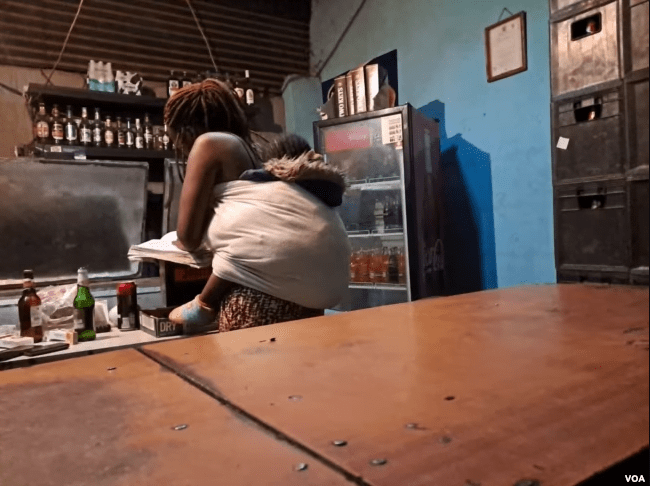HARARE – As life continues to be tough in Zimbabwe, many under-aged children are resorting to selling foodstuffs and snacks at beer halls as a way of earning an extra dollar for their families, much against the laws governing the operation of bars and bottle stores.
These minors sell items like boiled eggs, cigarettes, roasted groundnuts, sweets, and others. Police say this practice is in violation of the Liquor Act.
Sichelesile Mguni, who works with the National Youth Development Trust, says this is exacerbated by the current harsh economic situation in Zimbabwe.
“Things are really bad and everyone is looking for money – the father, mother, aunt and granny. This is where we’re also seeing children being conscripted into vending, and they end up at places like bars, which are for elderly people. Things that happen in these places are not suitable for children,” she says.
Mbulisi Ndlovu, a children’s rights activist and lecturer at Lupane State University, says parents are to blame for allowing children to sell different wares in beerhalls.
She says, “Manners are taught at home and not by the government. If you hear people praising Zimbabweans for being warm-hearted and respectful, this is because of the proper upbringing of these nationals. In that vein, if a child becomes a renegade, it means the lawlessness is coming from home, where he or she has been left to do as they please.”
However, a Bulawayo parent who preferred to use the name Magigwana, thinks otherwise.
“Hardships are pushing the whole family to go out there and look for that dollar. Unlike in yester-years when things were much better, it’s not surprising to see a mother and her child selling this and that in places like bars,” says Magigwana.
Human rights lawyer, Ephraim Mthombeni, says it is unlawful for children to enter premises like bars.
Human rights lawyer, Ephraim Mthombeni, says it is unlawful for children to enter premises like bars.
Mthombeni says, “If it is written ‘No Under 18’, we should not find any children in such places. This is a violation of the law and of the rights of children. Also, parents should desist from sending children to purchase or sell items in these places because this is going against the laws of the land.”
Mthombeni’s remarks are echoed by Zimbabwe Republic Police national spokesperson, Assistant Commissioner Paul Nyathi, who adds, “The law is very clear that bar owners should not allow children to enter their properties to purchase beer or for any other activity. In cases where this happens, we are appealing to the public to flag these places and the law will take its course. These people will be arrested.”
Social change champion, Sinqobizitha Nyathi, believes the only way to solve this issue is for all stakeholders to work together.
“The community must stand as one, where if an elder sees a child entering a bar, they must chase them away. Lawmakers and those who enforce the law also have a huge role to play. Councilors and residents’ associations, let’s all come together and fight this menace which can harm our children.”
Other children’s rights experts are of the view that this problem will be difficult to deal with, if the state of the economy continues to be in the doldrums, as is the case now.












